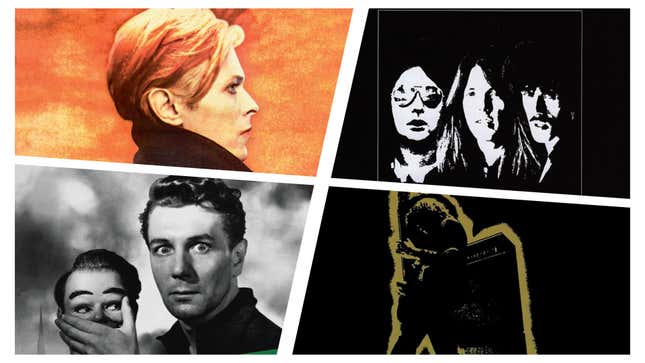
If only for his lifelong collaboration with David Bowie, Tony Visconti would be among the greatest record producers of the rock era. Visconti and Bowie bonded early in the singer’s career and, together, they assembled an adventurous and enduring catalog anchored by such classics as Low, “Heroes,” and Blackstar.
Visconti, who turns 80 on April 24, has a legacy that extends far beyond Bowie, though. He was instrumental in the creation of glam rock, producing every one of T. Rex’s great albums. He proved himself equally adept at delicate folk-rock and thunderous hard rock. He adapted to the new wave, dabbled with alt-rock on both sides of the Atlantic, helped worldbeat singer Angélique Kidjo win a Grammy, and hasn’t rested on his laurels in recent years, either, making memorable records by Esperanza Spalding and Perry Farrell.
Visconti’s 80th birthday gives us the perfect opportunity to look back at his prodigious career. Not every great record he made can be found on this list of 25 albums, but this selection gives a good idea of the range and depth of his remarkable body of work.